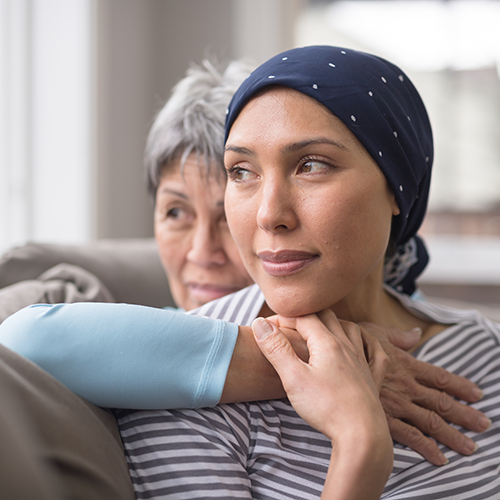Risk of late stage diagnosis of breast cancer: Is it where you live or how much you weigh?

Obesity, rather than area of residence, is a strong risk factor for a late stage diagnosis of breast cancer. Although women living in rural areas may have limited access to diagnostic tools such as mammography, living in a rural area is not associated with later stage at diagnosis.
More than 75 per cent of breast cancers are diagnosed in women over 50. Women in this high risk age group should be aware that weight control could be an important preventive measure for late stage diagnosis.
What is this research about?
Five-year survival rates for breast cancer have been shown to range from as low as 15 per cent for women diagnosed at late stages (stages II, III and IV) to as high as 93 per cent for those diagnosed at early stage (stage I). Therefore, understanding risk factors for a late diagnosis contributes to preventing breast cancer mortality in the population.
This research examined urban-rural differences and individual characteristics, such as such as country of birth, education, marital status, smoking and menopausal status as risk factors for a late stage diagnosis of breast cancer.
What did the researchers do?
Researchers used data from the Australian Longitudinal Study on Women’s Health (ALSWH) 1946-1951 cohort and linked the records with data from Australian state-based cancer registries. Participants included 195 women who could be identified from linked cancer registry data with a diagnosis of breast cancer.
Information on stage of breast cancer at the women’s diagnoses was drawn from the cancer registries. ALSWH surveys informed researchers on the women’s lifestyle sociodemographic and biological factors, and area of residence. This enabled a range of risk factors for a late stage of breast cancer at diagnosis.
What did the research find?
Despite previous evidence implicating rurality of residence with the risk of diagnosis of later stage breast cancer, this paper found no such association. Rather, after adjusting for individual characteristics, the strongest risk factor was obesity. For women who were in the morbidly obese category (BMI ≥ 30), the risk of being diagnosed with a late stage of breast cancer was 170 per cent greater than for women who had a BMI that was in the normal or underweight range.
How can you use this research?
Women at high risk of late stage diagnosis of breast cancer should be aware that weight gain, particularly leading to obesity, can increase their risks. It should be noted that obesity rates in the Australian rural population are higher than in the urban population. As women are becoming increasingly obese, clinicians and public health physicians should target interventions to prevent or reduce obesity.
Citation:
Leung J, Martin J, McLaughlin D. Rural-urban disparities in stage of breast cancer at diagnosis in Australian women. The Australian journal of rural health. 2016

